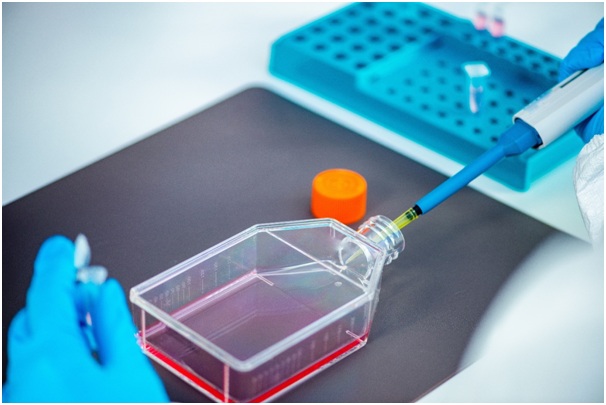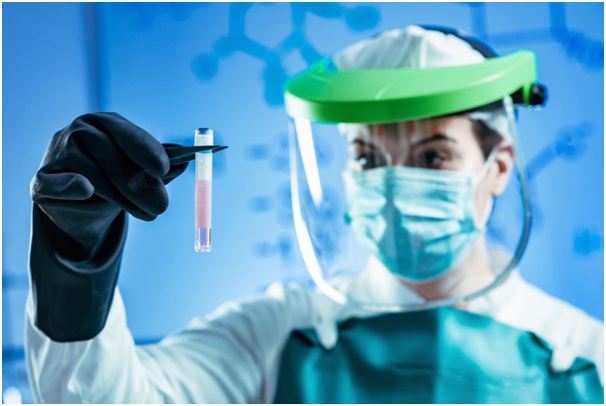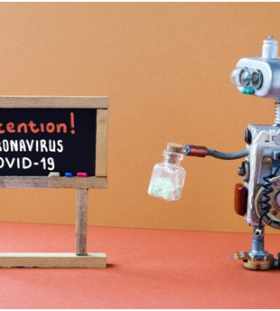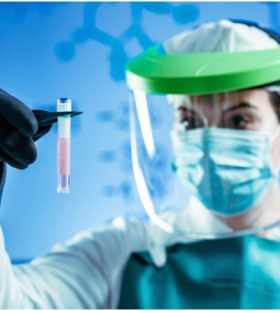Is there a Ray of Hope with Stem Cell Therapy Being Evaluated for Covid-19 Treatment?
One of the worst things to have happened in the 21st century has to be the outbreak of the novel corona virus. The disease that erupted in China has left the entire world struggling to keep its citizens alive. For most countries, the COVID-19 upsurge is observed to be uncontrollable. In fact, the mortality rates are high as well. It was tough to create a vaccine for such a widespread condition in a short span of time. Fighting all odds, the only Food and Drug Administration-approved drug is Remdesivir, an anti-viral agent, is the only treatment available of COVID-19. There are several ongoing studies aimed at developing other drugs and treatment methods for viral disease. This includes exploring stem cell therapy to save patients from this deadly virus. It has acted as a ray of hope with stem cell therapy for COVID-19 affectants.
In spite of all the efforts, it seems like there needs to be a strong push.
The numbers say that more than 141 million cases of COVID-19—caused by SARS-CoV-2 infection—have been reported globally as of April 19, 2021. There have been more than 3 million deaths.
Mesenchymal Stem Cells
The multipotent adult stem cells present in most human tissues are known as mesenchymal stem cells. They are also present in the umbilical cord.
They can divide and self-renew along with differentiating into various types of tissues like chondroblasts, hepatocytes, osteoblasts, etc.
Thus, comes into picture stem cell therapy as a regenerative medical treatment.
To elaborate on the topic, extensive studies are being conducted to understand the applications of mesenchymal stem cells in regenerative medicineand for their immunomodulatory properties.
According to several hypotheses, the mesenchymal stem cells could inhibit the cell-mediated inflammatory response induced by the deadly virus.

To explain this in simpler terms:
- Mesenchymal stem cells reduce a major marker of inflammation known as C-reactive protein
- The levels of anti-inflammatory protein IL-10 is increased with mesenchymal stem cell therapy
- The number of regulatory dendritic cells and lymphocytes is increased, meaning their anti-viral protection is increased
- Levels of inflammation-causing protein TNF-a is reduced
Furthermore, these cells are resistant to infection caused by SARS-CoV-2 as they do not contain a certain enzyme that is required for the virus to enter cells. It is known as the angiotensin-converting enzyme 2 (ACE2) receptor.
Currently, only clinical trials can be conducted to determine whether stem cell therapy works to treat COVID-19.
The COVID-19 Treatment Guidelines Panel is against the use of mesenchymal stem cells to treat patients before substantial proof has been gathered through clinical trials. These are yet to be FDA approved.
Studying Stem Cell Therapy for COVID-19
To begin on a positive note, it has to be accepted that according to official data, there have been at least seven recoveries of patients that were treated with mesenchymal stem cell treatment.
The pilot study was conducted in China with ten patients who were tested positive for COVID-19. The National Health Commission of China categorized these patients as being critical, common, or severe type.
Now, three of the seven patients with severe illness were given placebo infusion, others, mesenchymal stem cells—the latter group recovered with the standard procedure of care.
It should also be mentioned that all these patients cured with stem cell therapy experienced shortness of breath, fever, pneumonia, and decreased oxygen saturation.
The recovery took anywhere between a week to two weeks to be tested negative.
Here are a few details that should be known:
- The dose of mesenchymal stem cells given to patients was 1 million per kg of body weight
- No side effects
- Most symptoms caused while battling COVID-19 decreased after two to four days of beginning themesenchymal stem cell therapy
- The effects of pneumonia considerably reduced according to the computed tomography of the chest
Given the conditions today, this is a huge win for the medical community!
Stem Cell Therapy with Umbilical Cord
A small clinical trial was also conducted using human umbilical cord mesenchymal stem cells (hUC-MSC). The patients selected for the trial had been tested positive for COVID-19 and were being taken care of. They had not responded to any of the standard care given to them for seven to ten days, thus picked to be included in the study.
A total of 41 patients, of which 12 received hUC-MSC infusion, and the remaining were only given standard care therapies.
The patients who received hUC-MSC infusion as a part of the stem cell therapy study were sent home healthy. They did not need to be given mechanical ventilation.
This study cannot be taken into consideration for the win or be considered statistically significant as it lacked randomization due to the unavailability of hUC-MSCs.
Another double-blind, randomized controlled trial consisting of 24 COVID-19ARDS(Acute Respiratory Distress Syndrome) positive patients was conducted to determine the efficacy of hUC-MSC infusions.
At random, some patients receive placebo infusion on Day 0 and Day 3, while others got two infusions of hUC-MSC (prepared at a single site).

The primary endpoints included:
- Death or cardiac arrest within 24 hours of the infusion
- Infusion-related risks within six hours of receiving each of the infusions
- Any other adverse event during the trial
The secondary endpoint of the stem cell therapy trial included:
- Patient surviving for 31 days and more after the infusion
- Recovery time
The study did not show any difference in the primary safety analysis apart from the fact that seven patients who received placebo infusion died. Only two deaths were recorded among patients who received hUC-MSC infusions until the end of 31 days.
Data for one of the patients who dies from the group that received hUC-MSC infusions was censored considering the reason for death, i.e., failure to intubation.
The overall time of recovery was shorter for patients who received hUC-MSC infusions than those who were given placebo infusion.
Since the sample size of the trial was small, interpreting the results accurately would not be possible. Other factors like change in the inclusion of the number of patients on invasive mechanical ventilation and non-invasive ventilation should also be taken into consideration during the stem cell therapy clinical trials.
Clinical Trials for Other Viruses
Stem cells are also being used to find a cure for diseases caused by a number of viruses.
An open-label study related to the effects of mesenchymal stem cells to cure H7N9 influenza was carried out in China.
Of the total number of individuals who were a part of this study, 17 were given mesenchymal stem cell treatment along with the necessary standard care. The remaining 44 individuals only receive standard care.
Three patients from the prior group and 24 from the latter group died.
During their 5-year follow-up consisting of only five patients from the mesenchymal stem cell treatment group, no major concerns were identified.

Does Stem Cell Therapy Work?
The question still remains a mystery.
As mentioned in the article, there are several clinical trials trying to understand how mesenchymal stem cells can be better used to cure COVID-19.
Although the risks appear to be uncommon as of now, a deeper understanding can only be gathered with sufficient trials and success rates.
The potential risks could include mesenchymal stem cells multiplying to become inappropriate cell types causing tumors, product contamination, thrombus formation, infections, etc.
Furthermore, there is insufficient data available to understand the risks associated withmesenchymal stem cell therapy being used during pregnancies as well as on children infected with SARS-CoV-2.
Knowledge Evolution
SARS-CoV-2 is a new virus and mutates quickly.
To find a one-size-fits-all solution is going to take a long time, exactly how it is with most medications that prove to be 100% effective.
Clinical researchers are putting in days and nights of work into developing a cure to save the human race.
We determined after years of research that stem cell therapy for arthritis works wonders.
Let’s give the same time and patience to reach a solid solution to deal with the Novel Coronavirus.
I am an Author and what makes me the one is my ability of playing with the words. I also enjoy writing poetry and engaging my audience in my words. I have written for many websites and eBook and gained a good response.




